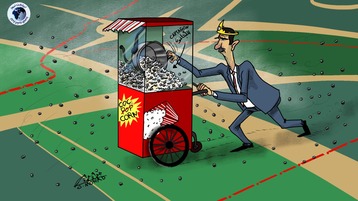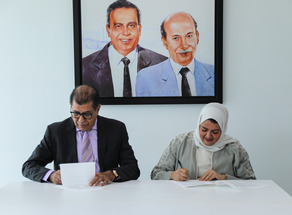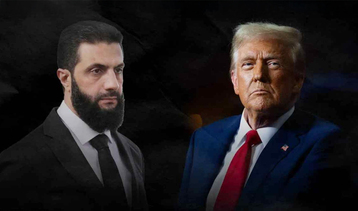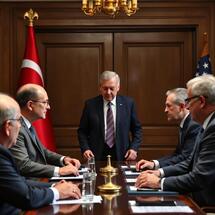-
German Chancellor Schulz faces pressure from inside to send arms to Ukraine
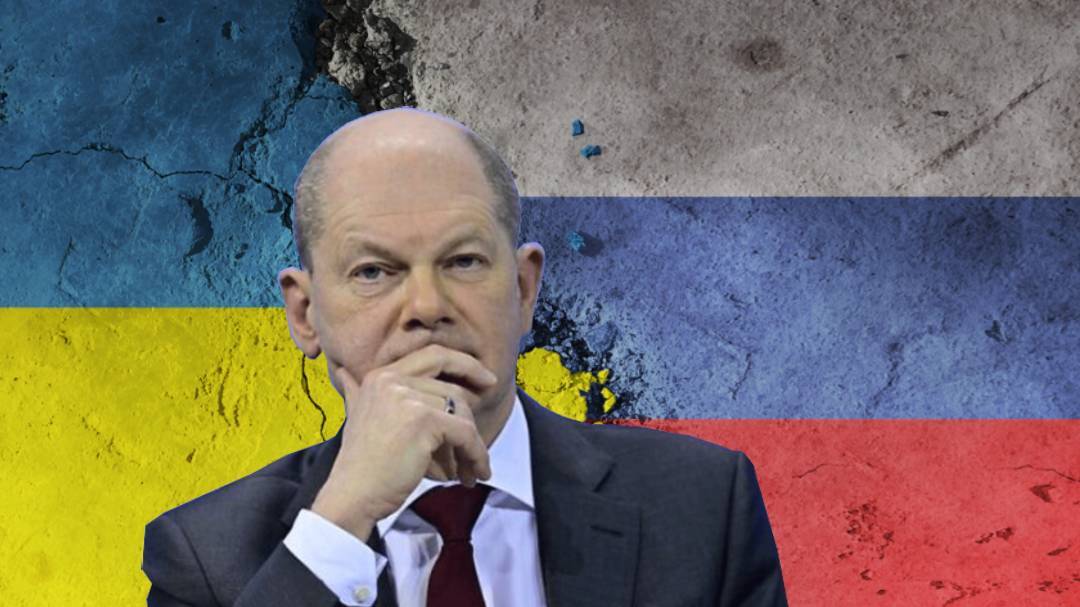
Germany’s chancellor is under growing pressure to authorize the delivery of heavy weaponry to help Ukraine defend itself against Russia’s looming eastern offensive, with Olaf Scholz’s coalition partners accusing him of failing to live up to his promises. The centre-left leader had surprised even close partners in his three-party coalition when on 27 February 2022 he announced an “epochal change” in Germany’s foreign policy to boost defense spending and relax its restrictive stance on exporting weapons to conflict zones.
The chancellor said early April 2022, that Germany had agreed with Ukraine on a list of requested weapons and other military gear, without giving details. Asked if the impression was correct that Germany won't be sending any battle tanks or war planes out of its own military stocks anytime soon, Mr Scholz avoided a clear answer. But, Germany has almost exhausted its ability to supply Ukraine with weapons from its army reserves, but is working on direct deliveries from the arms industry, German Defense Minister Christine Lambrecht said
German Tanks
Ukraine has received offers of tanks from Rheinmetall, as well as other companies, including the Krauss-Maffei Wegmann (KMW) arms group, according to media reports. However, some of the tanks could reportedly take many months to refurbish, while critics have also pointed out that Ukrainian soldiers would have to be trained to use them. Germany's position is that operators of weapons such as Marder and Leopard tanks need training before they could be used effectively by Ukraine's military. Instead, the government has suggested Poland and other eastern European partners could supply Soviet-era equipment and Germany can replace those with more modern gear.
Criticism of the German chancellor from the inside
The chancellor’s hesitation has caused a backlash from his coalition partners, the Greens and the liberal Free Democratic Party (FDP). While Cabinet members have so far refrained from public criticism - Annalena Baerbock
has only indicated to reporters that she’s in favor of delivering more advanced weapon systems - lawmakers have been more outspoken.
The FDP’s Marie-Agnes Strack-Zimmermann, chair of the Bundestag’s defense committee, also urged Scholz in an interview with the Stuttgarter Zeitung newspaper to “swiftly” approve the delivery of tanks. Leading lawmakers from the center-right Christian Democratic Union (CDU), the main opposition party, have also pushed for supplying tanks.

Under no circumstances should it be disclosed what weapons and equipment German has supplied to Ukraine so far. The list last got updated early April 2022. A selection of the things listed includes: 500 Stinger anti-aircraft missiles, 2,700 Strela surface-to-air missiles from former East German stocks, 3,000 anti-tank guns, 100 MG 3 machine guns, 16 million rounds of ammunition for various types of hand-held weapons and hundreds of anti-tank mines. Also, 80 armored all-terrain vehicles, 50 medical Unimog trucks, 14 pallets of medical supplies, half a million one-man packs of rations, four drone defense systems, plus night vision equipment and binoculars.
German government is still Divided
Despite Russia's warning to America and NATO of "unexpected consequences" for sending "more sensitive" weapons to Ukraine, the German Minister of Justice stressed that sending heavy weapons to Ukraine, such as tanks, "Is not an entry into the war."
The pressures on the German chancellor from within the coalition and the German politicians are still mounting, demanding him to send and speed up more weapons, the Greens, Foreign Minister Anna Lina Berbock is leading these pressures, but despite that there are also voices calling for not to provide more weapons, and this means that the German government is still Divided by the war in Ukraine, over the issue of arms supplies and cut off energy imports from Russia.
By: Jassim Mohamad - Bonn
Tags
You May Also Like
Popular Posts
Caricature
BENEFIT Sponsors BuildHer...
- April 23, 2025
BENEFIT, the Kingdom’s innovator and leading company in Fintech and electronic financial transactions service, has sponsored the BuildHer CityHack 2025 Hackathon, a two-day event spearheaded by the College of Engineering and Technology at the Royal University for Women (RUW).
Aimed at secondary school students, the event brought together a distinguished group of academic professionals and technology experts to mentor and inspire young participants.
More than 100 high school students from across the Kingdom of Bahrain took part in the hackathon, which featured an intensive programme of training workshops and hands-on sessions. These activities were tailored to enhance participants’ critical thinking, collaborative problem-solving, and team-building capabilities, while also encouraging the development of practical and sustainable solutions to contemporary challenges using modern technological tools.
BENEFIT’s Chief Executive Mr. Abdulwahed AlJanahi, commented: “Our support for this educational hackathon reflects our long-term strategic vision to nurture the talents of emerging national youth and empower the next generation of accomplished female leaders in technology. By fostering creativity and innovation, we aim to contribute meaningfully to Bahrain’s comprehensive development goals and align with the aspirations outlined in the Kingdom’s Vision 2030—an ambition in which BENEFIT plays a central role.”
Professor Riyadh Yousif Hamzah, President of the Royal University for Women, commented: “This initiative reflects our commitment to advancing women in STEM fields. We're cultivating a generation of creative, solution-driven female leaders who will drive national development. Our partnership with BENEFIT exemplifies the powerful synergy between academia and private sector in supporting educational innovation.”
Hanan Abdulla Hasan, Senior Manager, PR & Communication at BENEFIT, said: “We are honoured to collaborate with RUW in supporting this remarkable technology-focused event. It highlights our commitment to social responsibility, and our ongoing efforts to enhance the digital and innovation capabilities of young Bahraini women and foster their ability to harness technological tools in the service of a smarter, more sustainable future.”
For his part, Dr. Humam ElAgha, Acting Dean of the College of Engineering and Technology at the University, said: “BuildHer CityHack 2025 embodies our hands-on approach to education. By tackling real-world problems through creative thinking and sustainable solutions, we're preparing women to thrive in the knowledge economy – a cornerstone of the University's vision.”
opinion
Report
ads
Newsletter
Subscribe to our mailing list to get the new updates!


